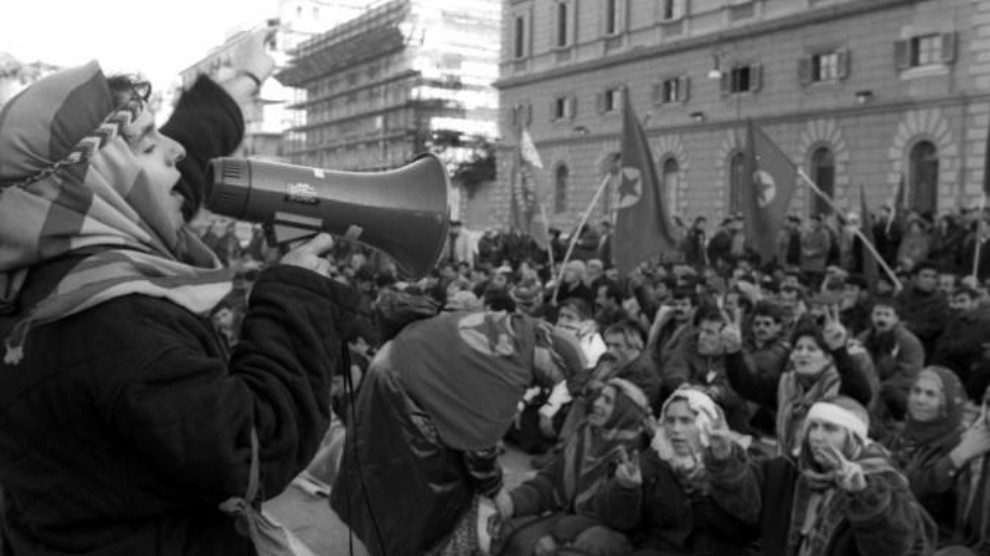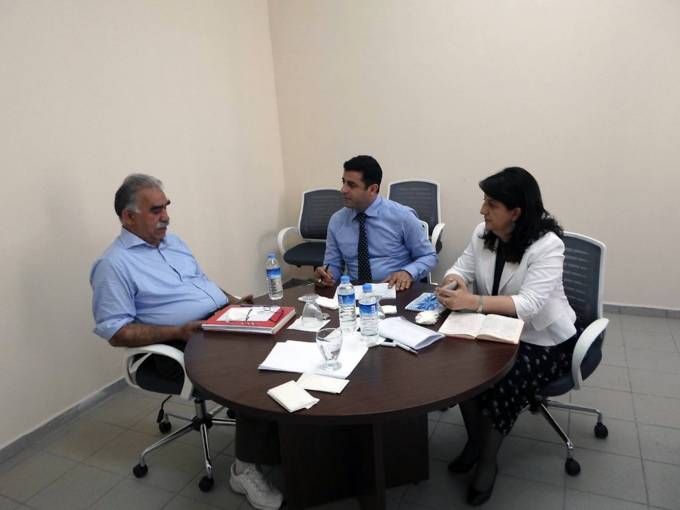Thursday marked 25 years since Abdullah Öcalan, the founding leader of the Kurdistan Workers’ Party (PKK), was captured by Turkish security forces in Nairobi, Kenya, and taken to Turkey.
The circumstances of Öcalan’s abduction on 15 January 1999 and his subsequent detention remain controversial, with human rights organisations raising concerns about the legality of his arrest and his treatment in Turkish custody.
Kurds and supporters of the Kurdish freedom movement worldwide unite every year to protest his controversial imprisonment, which they see as the genesis of an international conspiracy involving the security services of various nations, including the CIA, MI5 and Mossad.
As Öcalan’s imprisonment enters its 26th year, the Kurdish community is even more determined, because the statute of the International Criminal Court only allows for life imprisonment in exceptional cases, with a review after 25 years.
While Öcalan’s current situation remains the focus of international attention, it is imperative to revisit the events leading up to his capture in 1999 and to shed light on the complex circumstances that preceded this pivotal moment.
Prior to February 1999, Öcalan had been living in Syria for 19 years. However, escalating tensions between Turkey and Syria, with the former threatening military action if Öcalan was not deported, prompted his departure from the Middle East. Forced to leave, Öcalan embarked on a journey to Europe on 9 October 1998 with the aim of advocating a political solution to the Kurdish question.
However, this journey ended in his arrest. A review of the events leading up to 15 February provides important context. Here’s how they unfolded:
A timeline
On 28 August 1998, Öcalan declared a ceasefire and proposed a democratic solution to the Kurdish question in a live broadcast on MEDTV via a telephone connection. During the program, he also answered questions from 25 journalists representing international media organisations and Turkey’s mainstream news outlets. This program generated significant attention and received extensive coverage in the Turkish media. However, the PKK’s ceasefire, set to begin on International Peace Day on 1 September, and Öcalan’s proposal for a peaceful resolution did not receive a favourable response.
On the International Day of Peace, Kurdistan Workers’ Party leader Abdullah Öcalan’s 1998 live phone call from Damascus to a television program has resurfaced on social media.
🌍https://t.co/errH0JQwVh pic.twitter.com/xYwTuNaaIh
— MedyaNews (@1MedyaNews) September 2, 2023
Following this TV program, Turkey began pressuring Syria not to harbour Öcalan on its territory. On 15 September 1998, the Turkish Chief of the General Staff, General Atilla Ateş, appeared at the Syrian border with a crowd of flag-bearing citizens, wearing combat uniforms, rolling up his sleeves, and pointing towards Syria, stated, “Our patience is running out. We have no designs on anyone’s land, and no country will be allowed to have designs on our land. Our neighbour Syria must understand this very well.”
Subsequently, on 1 October, then-President Demirel warned Syria, stating that their patience had run out and Deputy Prime Minister Mesut Yılmaz made strong statements from the Syrian border in Hatay.
Thus, on 9 October, the plane carrying Öcalan, compelled to depart Syria, embarked on an uncertain journey from Damascus to Europe.

From Syria, Öcalan travelled via Cyprus to Greece and Moscow. On 12 November, he continued to Italy, accompanied by an Italian Member of Parliament, where he was arrested based on a German arrest warrant. During this period, thousands of Kurds living in Europe travelled to the Italian capital.
After the German government withdrew its extradition request on 23 November, Öcalan was released from house arrest in December 1998 and left Rome in January.
On 15 February 1999, Öcalan was captured in Kenya, where he had been granted temporary asylum by Greece’s ambassador to Kenya, and was forcibly taken to Turkey.
Öcalan was deceived, lured, drugged, and blindfolded, with the involvement of the intelligence services of the US, Greece, Kenya, Israel, and Turkey. His arrest remains a subject of debate, with legal experts arguing that it violated both Kenyan law and international legal principles.
In June 1999, the PKK leader was sentenced to death, a sentence later commuted to life imprisonment without parole when Turkey abolished the death penalty in 2002.

The struggle continues for peace
Since then, Öcalan has been held in near-total isolation in İmralı Island prison, which was designed the same year to hold Öcalan, in the Sea of Marmara, serving a life sentence. In recent years, the isolation has become increasingly more severe. He has had no contact with the outside world, in violation of both Turkish and international law, for almost three years. His last meeting with his lawyers took place in August 2019, and his last communication with anyone outside the prison walls – a brief phone call with his brother – dates back to March 2021.
Even after his arrest, Öcalan reiterated his call for peace, and the ceasefire declared by the PKK in 1999 lasted until 2004. Subsequently, the official peace talks between the PKK and the Turkish state, initiated in 2013, collapsed in 2015. Since then, the Turkish government has escalated its crackdown on Kurdish circles.
However, the Kurdish movement continues to reiterate its call for peace and demands an end to the isolation of Öcalan and his eventual release, which it sees as essential for a possible political solution to the Kurdish conflict in the country.










